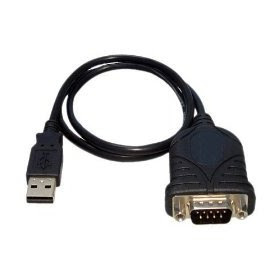
There are times when the luxury of a text based console just do not exist when debugging kernels on a PC and one has to dump debug out over a serial console. This used to be relatively straight forward a few years ago since every PC had a DB9 serial port and bit banging data over this was fairly low tech and just worked.
However, the modern PC does not have such legacy ports anymore, so one has to fall back to using a USB serial dongle instead. One can purchase such kit quite easily, I use a PL2303 based USB serial dongle, it's fairly inexpensive (about £3.00) and Linux provides a serial console tty driver for this. I attach one serial console to the PC that needs debugging and connect this via a null modem cable to my host PC which captures the debug using a serial console terminal such as minicom.
Install minicom on your host debugging machine:
sudo apt-get install minicom
and build a debug kernel for the target machine with the following config options:
CONFIG_USB_SERIAL_CONSOLE=y
CONFIG_USB_SERIAL=y
and enable the appropriate driver, e.g.:
CONFIG_USB_SERIAL_PL2303=y
Install this one the target machine to debug. Configure minicom to run at 115200 baud, 8 bits per char, no parity stop bits, no flow control and start it up on the host. Boot the target machine with the following kernel boot parameters:
console=tty console=ttyUSB0,115200n8
..and hopefully you will see all the console text appear in the minicom terminal, albeit rather slowly(!) You may see some dropped characters as flow control has been turned off.
This kind of debug is especially useful when you just cannot get normal VGA console debug output. However, because it's over USB, it can be a little useless for debug in the late stages of suspend or early stages of resume or boot.
I've used this technique to dump scheduling state over the console during X and network hangs. All in all, rather basic and crude, but it's another tool in my box for sorting out problematic kernel issues.
No comments:
Post a Comment